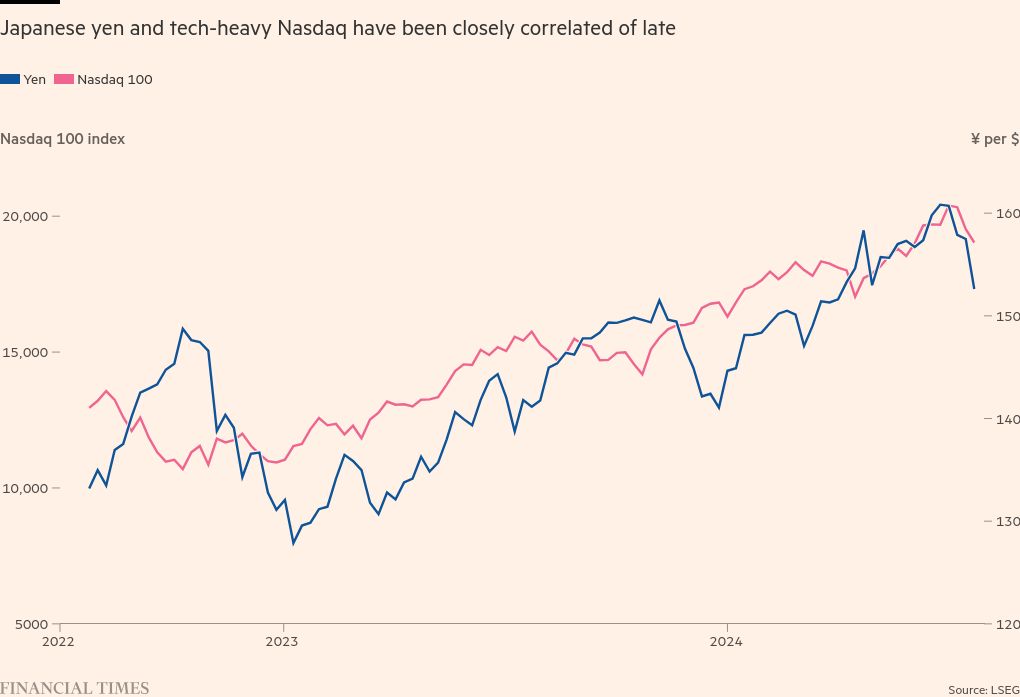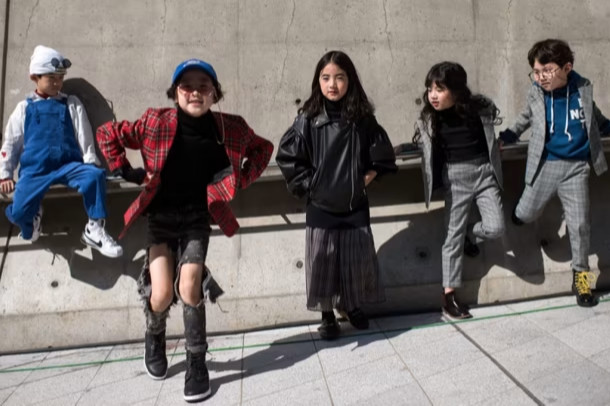
Good morning. Today we’re covering:
-
OpenAI’s new search tool
-
China’s retirement controversy
-
Why children’s luxury is booming in South Korea
But we begin with news on China and Russia’s deepening military co-operation.
The two countries have flown a joint strategic bomber patrol near Alaska for the first time, highlighting the growing scale and capability of a partnership that has raised concern among the US and its allies.
US and Canadian fighter jets intercepted two Russian and two Chinese bombers late on Wednesday, according to the North American Aerospace Defense Command (Norad).
Norad said the four aircraft did not enter US or Canadian airspace but operated in the Alaskan air defence identification zone and did not present a threat.
“It is not unusual for Russian bombers flying through the [Alaska] ADIZ to be intercepted,” said Alexander Korolev, an expert on Russian-Chinese military co-operation at the University of New South Wales in Sydney.
But the latest patrol was “notable for being the first intercept of Chinese military aircraft near Alaska”, Korolev said. Read more on the Chinese-Russian manoeuvre.
Here’s what I’m keeping tabs on today and over the weekend:
-
Monetary policy: Singapore’s central bank meets and is expected to keep its policy unchanged. (Bloomberg)
-
Trump-Netanyahu meeting: The Republican presidential nominee meets the Israeli prime minister at his Mar-a-Lago Club in Florida, a day after meetings with President Joe Biden and vice-president Kamala Harris.
-
Paris Olympics: The opening ceremony of the 2024 Games will be held today.
-
Venezuela election: Opinion polls predict opposition candidate Edmundo González will win Sunday’s presidential vote in a landslide. But the big question is whether authoritarian leader Nicolás Maduro would accept defeat.
How well did you keep up with the news this week? Take our quiz.
Five more top stories
1. OpenAI is launching an online search tool in a direct challenge to Google, opening up a new front in the race to commercialise advances in generative artificial intelligence. Here’s how “SearchGPT” will work.
2. Bangladesh’s garments industry is reeling after authorities imposed a curfew and communications blackout as part of a deadly crackdown on student’s protesting a job quota system. The restrictions have forced factories to shut and delayed shipments from the world’s second-largest clothing exporter.
3. Rupert Murdoch has moved to hand control of his family trust to his eldest son, Lachlan, sparking a bitter legal war between his children. The proposed changes to the trust are designed to cement a politically conservative direction for Fox and News Corp news outlets in the future, people familiar with the matter said.
4. The US economy grew at a 2.8 per cent annualised rate in the second quarter, surpassing economists’ expectation of 2 per cent GDP growth. Yesterday’s data showed continued consumer resilience as the Federal Reserve considers cutting interest rates in the coming months.
-
Wall Street steadies after tech rout: The Nasdaq Composite rebounded following the better than expected US growth figures, although chip stocks in Europe and Asia suffered heavy declines.
5. Plunging profits at Stellantis and Nissan have deepened fears that the global car industry is facing a prolonged downturn. Shares in the companies tumbled yesterday after the carmakers blamed increasingly cut-throat competition in the US and slowing sales growth of electric vehicles.
News in-depth

An intergenerational dispute has erupted on Chinese social media following a flagship Communist party gathering this month, where leaders called for the retirement age to be raised. China’s demographic decline threatens to leave it with too few workers, but the online anger is a reminder to Beijing that this is one area where even they need to tread carefully.
We’re also reading . . .
-
Macau’s Portuguese expats: As the casino city approaches the 25th anniversary of its handover to China, its Lusophone population faces a new set of challenges, writes William Langley.
-
Kamala’s ‘memeability’: The presumptive Democratic presidential candidate has resonated with Gen Zers thanks to an explosion of online content.
-
‘Heatflation’: Businesses are counting the cost of mitigating the effects of climate change on their workforce, and not all of them will be able to afford it, writes Leo Lewis.
Chart of the day
Is the yen behind the tech sell-off? The link between the Japanese currency and Silicon Valley stocks seems more than a coincidence, writes Katie Martin.

Take a break from the news
Are you better dressed than a Korean preschooler? The answer is probably not. Children’s luxury is booming in South Korea, the country with the lowest birth rate in the world, as parents splurge on Moncler jackets and Burberry shirts for their smaller families.

Additional contributions from Tee Zhuo and Harvey Nriapia
Recommended newsletters for you
One Must-Read — Remarkable journalism you won’t want to miss. Sign up here
Sort Your Financial Life Out — Learn how to make smarter money decisions and supercharge your personal finances with Claer Barrett. Sign up here